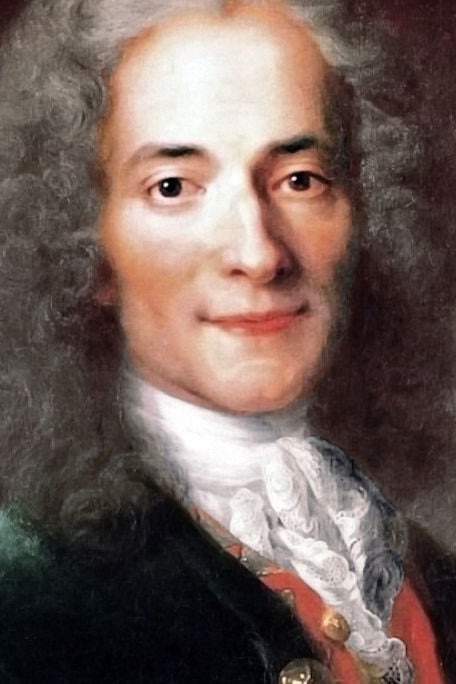
Personal info
Known for
Ultimate Talent
Gender
Male
Birthday
21 November
Location
Paris, France
Edit pageVoltaire
Biography
Voltaire, the pen name of François-Marie Arouet, was a French philosopher, writer, and historian whose wit and criticism of injustice made him one of the central figures of the Enlightenment. A champion of freedom of speech, religion, and thought, Voltaire used his pen to challenge tyranny, superstition, and intolerance, shaping modern ideas of liberty and human rights.
Early Life and Education
Voltaire was born on November 21, 1694, in Paris, France, into a middle-class family. His father was a lawyer, and he expected his son to follow in his footsteps, but Voltaire’s passion for literature led him in a different direction.
He was educated at the Collège Louis-le-Grand, where he studied classical literature and developed his skill in writing and rhetoric. From an early age, he was known for his sharp wit and fearless criticism of authority — traits that would define his entire career.
Career and Major Works
Voltaire began his literary career as a poet and playwright, gaining fame for his clever and often controversial works. His criticism of the French government and aristocracy, however, led to imprisonment in the Bastille in 1717. After his release, he adopted the name Voltaire and continued to write boldly on political and social issues.
He spent several years in exile in England, where he was influenced by the works of John Locke and Isaac Newton. England’s more liberal society inspired his admiration for constitutional government, religious tolerance, and scientific reasoning.
Voltaire’s writings spanned many genres — plays, essays, poems, and philosophical treatises. His most famous work, “Candide” (1759), is a satirical novel that attacks blind optimism and exposes the hypocrisy and cruelty of society. Other notable works include “Letters on England” (1733), “Philosophical Dictionary” (1764), and numerous essays promoting justice and tolerance.
Throughout his life, Voltaire was a tireless advocate for civil liberties, freedom of expression, and the separation of church and state. He often said, “I disapprove of what you say, but I will defend to the death your right to say it.”
Later Life and Death
In his later years, Voltaire lived in Ferney, near the French-Swiss border, where he continued to write and engage in correspondence with intellectuals and political leaders across Europe. His home became a hub for Enlightenment thinkers.
Voltaire returned triumphantly to Paris in 1778, after decades of exile, and was celebrated as one of France’s greatest writers. He died that same year, on May 30, 1778, at the age of 83.
Legacy
Voltaire’s influence on modern thought is immense. His defense of reason, freedom, and justice helped lay the foundations for the French Revolution and the development of modern democratic ideals. He remains a symbol of intellectual courage and the power of the written word against oppression.
Conclusion
Voltaire dedicated his life to fighting ignorance, intolerance, and tyranny through wit, reason, and truth. His belief in human dignity and freedom continues to inspire movements for justice and equality around the world. Through his fearless voice, Voltaire taught that words can change the world — and that reason and compassion are the strongest weapons against oppression.